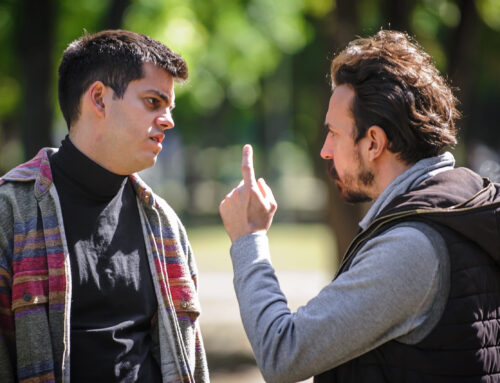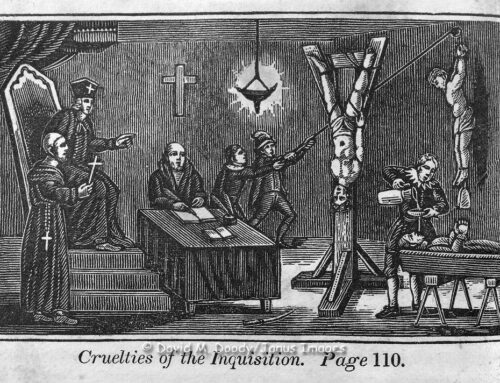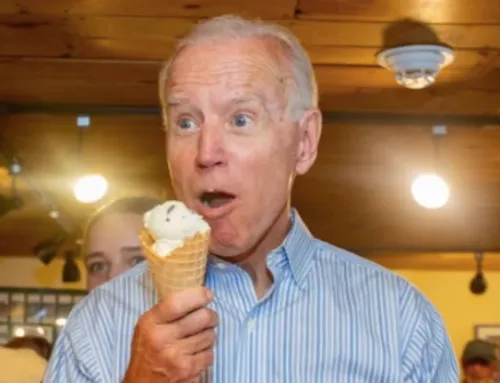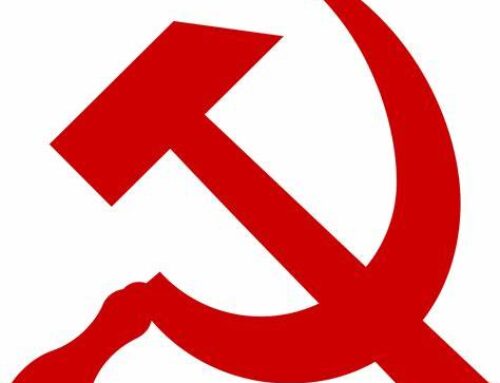Hardliner Ebrahim Raisi heads for an easy win in Iranian elections as rivals quit (plus related article following this one)
Friday, June 18, 2021
By Richard Spencer, Middle East Correspondent
Reprinted from The Times (London)
Empty polling stations in Iran’s presidential election today confirmed fears of a low turnout, making it ever more likely that a conservative judge favoured by the hardline establishment will be voted in virtually unopposed.
The exiled opposition and even former regime insiders still in the country had called for a boycott of the vote, which has been heavily engineered to favour Ebrahim Raisi, 60, the chief justice.
He was always the favourite for the presidency, given the unpopularity of the current reformist government of President Rouhani, who has to stand down after two terms.
As chief justice, Raisi was able to stand as an outsider to day-to-day politics while posing as leading efforts to combat corruption.
His victory was made all the more assured by the disqualification of all his best-known opponents by the Council of Guardians, which vets candidates. Three of the remaining seven candidates pulled out this week, making it more likely that Raisi would win by securing 50 per cent of the votes on the first ballot.
The only hope for his main “moderate” rival, Abdolnaser Hemmati, the former central bank governor, was for a big turnout to ensure the vote went to a second round next week.
However, videos posted online from around the country showed few queues at normally busy polling stations.
The first vote was cast by the supreme leader, Ayatollah Ali Khamenei, who has in recent days shown signs of worrying that the establishment’s clear preference for Raisi would damage the election’s legitimacy in the eyes of the public.
“Through the participation of the people, the country and the Islamic ruling system will win great points in the international arena but the ones who benefit first are the people themselves,” he said at his Tehran polling station. “Go ahead, choose and vote.”
Raisi is seen as likely to harden Iran’s position towards the West. In the early days of his rise through the ranks of the judiciary in the 1980s, Raisi was one of the prosecutors who presided over mass show trials of dissidents which led to thousands being hanged, during the Islamic Republic’s darkest days.
He was put under sanctions by the United States in 2019, with the designation citing his role in those executions and his position in the judiciary, which is accused of abuses including the execution of minors.
A Raisi presidency would ensure, though, that the regime was united in its dealings with the world, after eight years in which the “reformist” government of President Rouhani, 72, who favoured opening the country up, clashed openly with loyalists close to Khamenei.
Raisi has promised to continue negotiations to rejoin the 2015 nuclear deal — scrapped by President Trump in 2018 — but has pledged to strike a harder bargain with the US than he claimed Rouhani was offering.
The election brings to a close Rouhani’s eight-year presidency, which began with high hopes in the West for more moderate policies in Tehran, and expectations in Iran of an economic revival. Neither came to pass.
Reformists have criticised the growing sway of the Islamic Revolutionary Guard Corps, which answers directly to the supreme leader, as Rouhani’s government has become wildly unpopular. Accusations of corruption have been levelled against reformist and hardline figures alike, and Raisi, who lost to Rouhani in the 2017 election but was appointed chief justice shortly after, is standing on his record of fighting corruption.
Among those imprisoned under his watch was Hossein Fereydoun, Rouhani’s brother.
It was said when Raisi entered the race in 2017 that it was a trial run for this year’s election, and even a sign that he was the supreme leader’s choice eventually to succeed him. Ayatollah Khamenei is 82.
The campaign was fought vigorously, with the remaining candidates battling it out in television debates over who was responsible for Iran’s economic crisis.
Hemmati, 64, emerged as the standard bearer for the reformist cause. He defended his boss’s detente with the West and said that renewed attempts to have sanctions lifted and trade resume were the only way to lift Iran out of poverty.
Hemmati, like the two other remaining candidates still hoping to challenge Raisi, has remained at single digits in opinion polls.
The only way Raisi might lose is if he is forced into a run-off against Hemmati, who could stage a late surge if pro-reformists abandon the boycott and rally round him.
Saeed Jalili, a hardline former nuclear negotiator, urged his supporters to vote for Raisi as he announced his own withdrawal this week. “A significant part of society has favoured my dear brother,” he said, referring to the chief justice.
The Council of Guardians has rejected suggestions that it has fixed the election in Raisi’s favour. “The media and the people have testified that this is a good competition,” Abbas Ali Kadkhodaei, its head, said in a press conference yesterday.
However, Ali Larijani, a former speaker of parliament, has demanded to know the grounds on which he was disqualified and Rouhani protested about the lack of competition in a letter to the supreme leader. Khamenei himself appears to have admitted that some of the rejected candidates were unfairly treated. In a television broadcast he urged people to go out and vote anyway.
Siavush Randjbar-Daemi, a lecturer in Iranian politics at St Andrews University, said that although Raisi was the front-runner surprises could never be ruled out. “The system may be engineered but it is not German engineering,” he said. “Abdolnaser Hemmati has been putting up a valiant struggle.”
Negar Mortazavi, an analyst at the Middle East Institute think tank, was sceptical. “Elections in Iran have never been free or fair but they have been competitive,” she said. “This election seems to be the least competitive of all.”
Butcher-in-Chief: Iran’s President-to-be Committed Mass Executions
Ebrahim Raisi, hand-picked by Ayatollah Khamenei as the only serious ‘approved’ candidate, is accused of complicity in deaths of thousands of political prisoners
A supporter with a picture of Iranian presidential candidate Ebrahim Raisi in Tehran, June 16, 2021. (AP/Ebrahim Noroozi)
June 17, 2021
By Yakir Benzion
Reprinted from United With Israel
Related:
It is widely known that “elections” in Iran are a joke and this week’s presidential election is no exception, because it’s already known that ultraconservative cleric Ebrahim Raisi is going to win.
In Iran’s version of “democracy”? If you want to run for president, you have to first be approved by a body called the Guardian Council, whose members are all appointed and supervised by Iran’s aging Supreme Leader Ayatollah Ali Khamenei.
Out of the 592 Iranians who applied to run for president, the Guardian Council approved only seven. Raisi is widely seen as a possible successor to Khamenei and has the nasty credentials needed to fill Khamenei’s shoes of ruling over a country with one of the worst human rights records on the planet.
Two years ago Khamenei appointed Raisi head of the Islamic Republic’s judiciary, based on his long history of working in senior judicial roles, including attorney general and assistant prosecutor at the tender age of 20.
But Raisi, now 60, has a legal career tainted by what one would expect under an Islamic dictatorship. He is suspected of playing a major role in the execution of thousands of political prisoners in the 1980s when Ayatollah Khomenei was purging any opposition to his iron-fisted regime.
When he got the judicial appointment, then deputy State Department spokesman Robert Palladino tweeted that “[Raisi was] involved in mass executions of political prisoners, [and[ was chosen to lead #Iran’s judiciary. What a disgrace! The regime makes a mockery of the legal process by allowing unfair trials and inhumane prison conditions. Iranians deserve better!”
Even the left-wing Guardian newspaper in England, which is extremely anti-Israel, noted that Iran’s election is a sham and said Wednesday that “Iran’s next president will ride a wave of voter apathy into power. After years of government corruption, repression and violence, many Iranians are expected to boycott Friday’s elections.”
With Iran’s economy in ruins due to the regime’s obsession with investing in nuclear and military programs, instead of civilian infrastructure, the country’s 60 million people appear to be fed up and will express themselves the only way they can – by not voting.
Despite high voter turnout in previous elections of over 60%, less than 40% of eligible voters are expected to cast their ballot this time, and Raisi is expected to cruise to victory.
He may also eventually become the next Supreme Leader of the country, whose stated goal is the destruction of Israel.
RELATED:
I recommend reading this book…
Diplomatic Warfare? U.K. Writes ‘Occupied Palestinian Territories’ on Israeli’s British Passport
Turkey Praises—and Seeks to Emulate?—a Mass-Murdering, Pedophilic, Slave-Trader
The Remarkable Story of Bob Fu
VIDEO: “The World Turned Upside Down” — Melanie Phillips
How to Reach the West (Again)
Communist China and Iran: Join Up the Dots









Leave a Reply, please --- thank you.